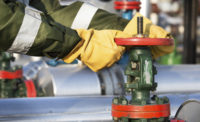IPIECA, the global oil and gas industry association for environmental and social issues, has released the final version of the IPIECA climate change reporting framework. Supplementary guidance for the oil and gas industry on voluntary sustainability reporting (2017) is now available. The guidance complements and builds on the topics laid out in IPIECA’s Oil and gas industry guidance on voluntary sustainability reporting (2015) and has been revised following a pilot period and stakeholder consultation.
Straight-forward and transparent
There are increasing expectations for the petroleum industry around reporting on climate change issues, with a variety of voluntary initiatives and platforms, growing in magnitude, detail and complexity. To simplify this situation, IPIECA has developed a reporting framework for oil and gas companies to publicly disclose this information in a simple, straight-forward and transparent manner, that offers a broad coverage of the issues and provides a consistent reporting methodology. IPIECA recognises and is supportive of the need for transparency on issues related to climate change that impact the oil and gas sector. This supplementary reporting framework will help facilitate public disclosure of climate related risks and greenhouse gas (GHG) emissions performance data relevant to our industry. It is for each company to develop its own approach to reporting on climate change risks, opportunities and GHG emissions performance for external stakeholders, and the framework is intended to aid companies in achieving this objective.
The framework includes sections on:
- Climate change positions, policies or principles
- Responsibilities and accountabilities
- Stakeholder engagement approaches
- Implications of shifting energy supply/demand and climate policy
- Corporate risk management approaches
- Emissions mitigation strategies, programmes, initiatives and activities
- Addressing GHG regulation
- Research and development
- GHG and energy data
- Assurance








